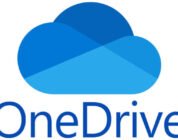Introduction of Microsoft Access
In the ever-evolving landscape of digital transformation, data has emerged as the new currency. From small businesses to multinational corporations, the efficient management of data plays a pivotal role in driving growth and making informed decisions. Among the myriad tools available for data management, Microsoft Access stands tall as a versatile and user-friendly database management system (DBMS). In this blog, we’ll take a deep dive into the world of Microsoft Access, exploring its features, benefits, use cases, and how it empowers individuals and organizations to harness the true potential of their data.
The Essence of Microsoft Access
Microsoft Access, part of the Microsoft Office suite, was first introduced in 1992 as a revolutionary DBMS, and it has since become a trusted companion for millions of users worldwide. Access offers a unique blend of simplicity and power, enabling users to create, manage, and manipulate their data without requiring extensive technical expertise.
Who’s For Microsoft Access
Microsoft Access is tailored for individuals and organizations seeking an intuitive and versatile database management solution. It’s an ideal choice for small to medium-sized businesses, project managers, educators, researchers, and even non-technical users who want to efficiently organize, analyze, and utilize their data. With its user-friendly interface, querying capabilities, and integration with other Microsoft Office tools, Access empowers users across various industries to make informed decisions, streamline processes, and enhance collaboration. Whether you’re a business owner, project manager, educator, or enthusiast, Microsoft Access offers the tools to transform data into actionable insights.
Microsoft AccessKey Features and Functionalities
Microsoft Access is packed with a variety of key features and functionalities that make it a powerful tool for data management. Here are some essential features, each with a brief explanation of its importance:
- Table Creation and Management:Access allows users to create tables for storing data. Tables provide the foundation for structured and organized data storage. You can define fields, data types, and relationships between tables.
- Querying and Filtering:Access’s querying capabilities enable users to extract specific information from their datasets. Users can create complex queries using a visual interface, facilitating data analysis and reporting.
- Forms for Data Entry:Forms simplify data entry by providing a user-friendly interface for inputting data. Customizable forms improve accuracy and efficiency when capturing information.
- Reports Generation:Access lets users generate professional-looking reports from their data. Reports can be designed to summarize, analyze, and present information visually, aiding in decision-making.
- Relationships and Joins:Access enables users to establish relationships between tables. This feature helps maintain data integrity and enables efficient querying by linking related information.
- Import and Export Data:
- Access supports importing data from various sources, such as Excel spreadsheets, CSV files, and external databases. It also allows users to export data for sharing with others.
- Macros for Automation:Macros in Access automate repetitive tasks and actions. They can be used to create custom actions, such as opening forms, running queries, or even sending emails.
- Visual Basic for Applications (VBA): Advanced users can use VBA, a programming language, to create custom functionalities and automate complex tasks. VBA enhances Access’s capabilities and offers more flexibility.
- Security and User Permissions: Access provides options to set user permissions and control who can access, modify, or delete data. This ensures data security and prevents unauthorized access.
- Integration with Microsoft Office:Access seamlessly integrates with other Microsoft Office applications such as Excel, Outlook, and Word. This facilitates data sharing, collaboration, and enhances productivity.
These features collectively make Microsoft Access a versatile tool for managing data, whether for small businesses, project management, educational purposes, or personal use. Its intuitive interface and array of functionalities cater to a wide range of users, from non-technical individuals to professionals requiring advanced data management capabilities.
The Essence of Microsoft Access
- User-Friendly Data Management: Microsoft Access provides an intuitive interface for creating, storing, and managing data. Its user-friendly design empowers both technical and non-technical users to work efficiently.
- Efficient Querying and Analysis: Access’s querying capabilities enable users to sift through large datasets swiftly. This empowers users to gather valuable insights and make informed decisions.
- Customizable Data Interaction: Through forms, Access simplifies data entry by tailoring interfaces to specific needs. This reduces errors and enhances accuracy during the data capture process.
- Insightful Reporting: Access enables the creation of visually appealing reports, transforming raw data into easily digestible information. These reports aid in conveying trends and patterns to stakeholders.
- Seamless Integration and Collaboration: Access seamlessly integrates with other Microsoft Office tools, fostering collaboration and data sharing across different applications. This interoperability streamlines workflows and enhances productivity.
Applications Across Industries of Microsoft Access
- Retail Inventory Management: Access helps retailers track inventory levels, monitor sales trends, and manage stock reorder points, ensuring optimal product availability.
- Healthcare Patient Records: Medical institutions use Access to maintain patient records, appointment schedules, and treatment histories securely and efficiently.
- Educational Institution Management: Schools and universities utilize Access to manage student records, course schedules, grades, and attendance, facilitating streamlined administration.
- Project Tracking and Management: Access aids project managers in creating databases to track tasks, resources, and timelines, promoting efficient project monitoring and collaboration.
- Customer Relationship Management (CRM): Access assists businesses in organizing customer information, interactions, and purchase history to enhance personalized service delivery.
- Real Estate Property Management: Real estate professionals use Access to manage property listings, rental agreements, tenant information, and lease expirations effectively.
- Event Planning and Tracking: Access helps event planners manage guest lists, RSVPs, budgets, and schedules, ensuring seamless event execution.
- Research Data Analysis: Researchers use Access to store and analyze research data, helping them identify patterns and trends for informed decision-making.
- Financial Tracking and Budgeting: Access aids individuals and businesses in tracking expenses, creating budgets, and managing financial data for better financial planning.
- Small Business Operations: Access serves small businesses in various sectors, offering tools to manage sales records, employee information, and other critical business data.
The Future of Microsoft Access: Embracing Innovation
The future of Microsoft Access is poised to embrace innovation by further integrating cloud technology and expanding its capabilities. As cloud computing continues to shape the digital landscape, Access will likely offer more robust cloud-based solutions, enabling real-time collaboration and remote access to databases. Moreover, with advancements in AI and machine learning, we might see Access incorporating predictive analytics and automation features, revolutionizing data management and decision-making. By adapting to evolving technological trends, Microsoft Access is primed to remain a relevant and indispensable tool for efficient data management across industries.
Benefits Of Using Microsoft Access
- User-Friendly Interface: Access’s intuitive design empowers users with varying technical backgrounds to manage data efficiently without extensive training.
- Quick Data Entry: Customizable forms simplify data input, reducing errors and improving accuracy in capturing essential information.
- Efficient Data Organization: Access’s relational database capabilities ensure structured data storage, enhancing data consistency and reducing redundancy.
- Powerful Querying: Users can extract specific information through visual queries, aiding in data analysis and informed decision-making.
- Insightful Reporting: Access’s report generation feature transforms raw data into visual reports, making it easier to present and comprehend trends.
- Seamless Integration: Access integrates smoothly with other Microsoft Office applications, facilitating data sharing and collaboration.
- Scalability: Access caters to diverse needs, accommodating both small projects and larger datasets as businesses grow.
- Automation and Macros: Macros automate routine tasks, improving productivity by reducing manual effort in database interactions.
- Customization: Advanced users can leverage Visual Basic for Applications (VBA) to create tailored functionalities, adapting Access to specific requirements.
- Data Security: Access offers user permission controls, ensuring data confidentiality by restricting access based on roles and responsibilities.
Conclusion
Microsoft Access is much more than just a database management tool; it’s an empowerment tool that bridges the gap between data and decisions. Its intuitive interface, robust querying capabilities, and seamless integration with other Office applications make it a versatile solution for businesses, educational institutions, and individuals alike. As technology advances, Access continues to evolve, ensuring that users can harness the power of their data in an ever-changing digital landscape. Whether you’re a small business owner, a project manager, or an enthusiast embarking on a personal project, Microsoft Access has the potential to be your trusted companion in the journey of data management.
How to get Microsoft Access
To access Microsoft Access, you have a few options like:
- Microsoft Office One-Time Purchase: You can purchase Microsoft Word as part of the Microsoft Office suite for a one-time fee $159.99. Visit the official Microsoft website or authorized retailers to check the current pricing and available packages.
- Microsoft 365 Subscription: Microsoft offers a subscription service called Microsoft 365 (formerly Office 365)$69.99/year or $6.99/month, which includes Microsoft Word and other Office applications. Subscriptions are available at different price tiers, usually billed annually or monthly. Microsoft 365 offers additional features such as cloud storage, regular updates, and access to Office apps on multiple devices. Visit the Microsoft website to explore the subscription options.
- Microsoft Office Online (Free): You can use a simplified version of Microsoft Office for free through your web browser by visiting the Microsoft Word Online website. This online version offers basic document editing features without the need for a subscription.
- Free Trials: Microsoft often provides free trial versions of its Office suite or Microsoft 365. These trials typically offer full access to the applications for a limited period. Check the Microsoft website for any ongoing trial offers.
- Preinstalled on Devices: Some new computers or laptops come with Microsoft Office preinstalled, which may include Microsoft Word. Check with the manufacturer or retailer for details.
For the most up-to-date pricing details and online purchase links, we recommend visiting the official Microsoft website or authorized retailers specific to your region. Keep in mind that availability, pricing, and packages can vary, so it’s best to directly access the official sources for accurate information.




